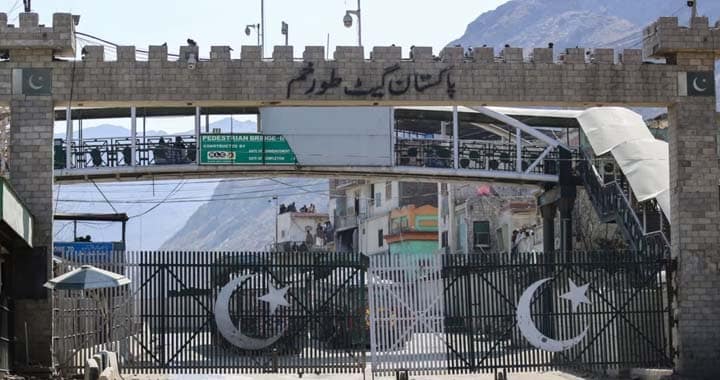The Torkham border crossing Pakistan’s principal trade and transit gateway with Afghanistan was sealed from midnight after Afghan border forces resorted to unprovoked and indiscriminate firing. The latest incident marks yet another act of aggression by Afghan forces, jeopardizing the fragile peace along the frontier and disrupting vital cross-border trade and movement.
According to officials, the Afghan side initiated hostilities late Saturday night, targeting Pakistani border posts without provocation. In response, Pakistani authorities took swift security measures, closing the Torkham crossing for all forms of movement, including pedestrian travel and commercial transportation. All heavy cargo trucks have been stopped on both sides, and Torkham’s usually busy roads and markets now stand deserted. Passenger vehicles en route from Peshawar to Kabul were forced to turn back due to the sudden escalation.
“Pakistan exercised maximum restraint despite the unwarranted aggression,” an official said, adding that the border would remain closed until security and order are fully restored. Authorities stated that the decision was taken purely in the interest of public safety and to prevent further escalation caused by irresponsible actions from across the border.
The incident has once again highlighted Pakistan’s consistent challenges in maintaining peace along its western frontier despite repeated provocations. Officials noted that Pakistan has always pursued diplomatic engagement and dialogue, while Afghan forces have continued to act in violation of established border protocols.
Earlier this year, on February 21, the Torkham crossing was shut down after similar disputes emerged over unauthorized Afghan construction near the zero line. The situation worsened in March when Afghan Taliban forces exchanged fire with Pakistani troops, injuring eight people, including six Pakistani soldiers. Artillery fire during those clashes damaged homes, a mosque, and several offices on the Pakistani side.
Following those hostilities, Pakistan’s tribal jirga members had held extensive negotiations with Afghan elders, urging compliance with agreed mechanisms requiring both sides to coordinate before making any changes along the border. Pakistan had clearly conveyed that no additional structures or renovations would be tolerated near the zero point, in line with prior understandings. Although the Afghan side had initially responded positively and suspended work on the disputed Zangali Post, their latest actions have once again violated that commitment.
Customs officials at Torkham said previous closures had inflicted heavy losses nearly USD 1.5 million per day in halted exports and Rs545 million in suspended imports — affecting traders and transporters on both sides. The current closure, they warned, would again disrupt regional commerce due to reckless Afghan actions.
Pakistani authorities reiterated that the security of the country’s borders remains paramount. “Pakistan has always demonstrated restraint and responsibility, but any aggression against its sovereignty will be dealt with firmly,” a senior official said. “The reopening of the Torkham crossing will depend entirely on the Afghan side’s ability to prevent further provocations and adhere to established border protocols.





